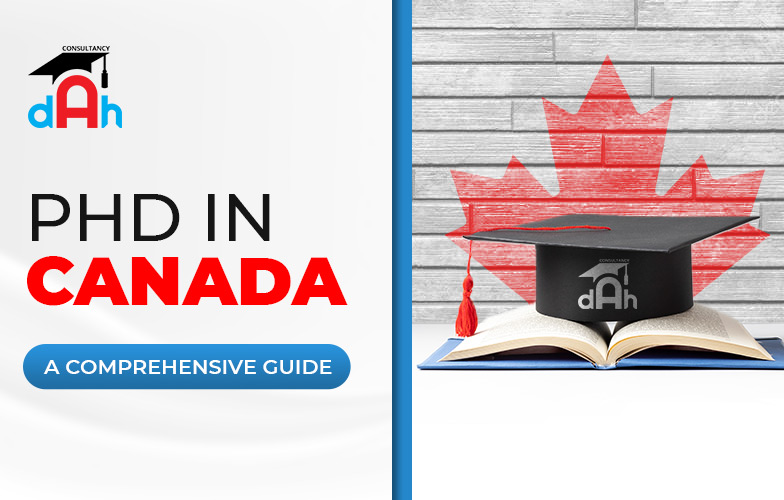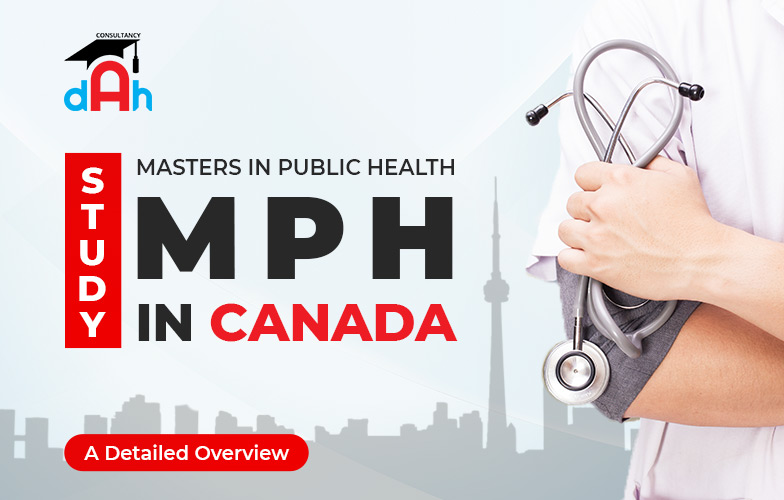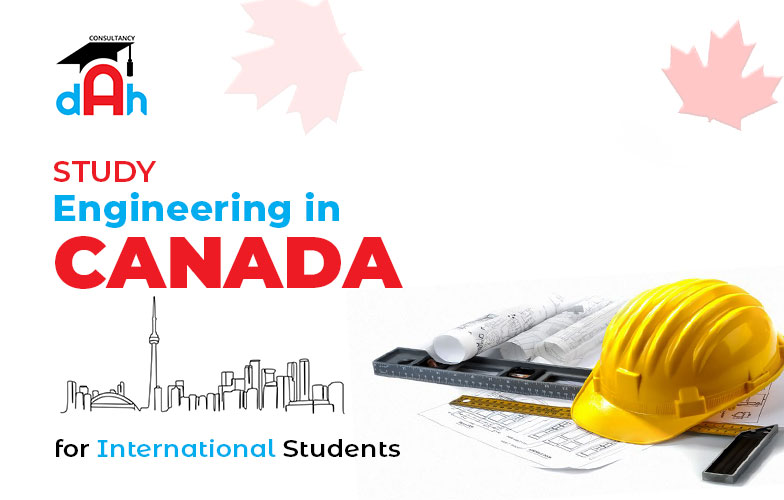Canada is an ideal country for higher studies among international students. The country is known for many research-intensive universities and a high-quality education system. Education from Canada is valued and respected worldwide. If you are planning to study PhD programs in Canada for international students, it might be your wisest decision.
Many researchers along with international students choose to Study in Canada. The country is full of opportunities, great amenities, and a lot more to offer. Let’s have a look into the things you need to be aware of before starting your process.
Table of Contents
- Why Study PhD in Canada for international students is important?
- How to Apply PhD in Canada as an International Students? Admission Requirements
- List of Top PhD Courses in Canada for International Students:
- List of Top PhD Universities in Canada for International Students
- How much does it cost to study PhD in Canada?
- Study PhD in Canada for International Students with Scholarships
- Scope after PhD in Canada for International Students
- Conclusion: PhD in Canada for International Students
- FAQs on Study PhD in Canada for international students:
Why Study PhD in Canada for international students is important?
Canada has always been popular among international students for pursuing their higher education. Canada’s diversified society and the considerable law for international students by the Canadian Government have managed to entice a large number of international students to Study PhD in Canada. Canada is your go-to country for quality education and lifestyle with almost all the aspects considered. The reasons to choose Canada as your study destination are uncountable. Let’s dive into some of them;
Study PhD in Canada for Top Universities
It is very clear that Canada is home to many of the top-listed universities in the world. Canadian universities are worldwide known for being research-intensive. And the high-quality education provided by them can never go neglected. Along with it, Canadian universities offer a wide range of courses to international students. Anyone willing to pursue PhD in Canada will not have much trouble finding their field of interest in universities.
Study PhD in Canada for after Post-Graduation Work Permit
International students are allowed to live and work for 2-3 years in Canada after their graduation through Post-Graduation Work Permit Program (PGWPP). After studying PhD in Canada, one can gain a lot of valuable experiences during their stay in Canada. Moreover, it will help them build their expertise in their respective fields. Not only this, but PGWPP will also help individuals pave their path to getting PR in Canada.
Study PhD in Canada for Affordable Tuition Fees
Canada is mostly chosen country by foreign students for the fact that it provides high-quality education at affordable tuition fees. The tuition fee to study PhD in Canada is way lesser compared to other English-speaking countries.
Study PhD in Canada for Employment Opportunities
The plus point of studying PhD in Canada is that one can work while studying. Students pursuing PhD in Canada are allowed to work up to 20 hours a week as long as they have a valid study permit for their degree.
Study PhD in Canada for Great Outdoors
Excluding the great employment opportunities, high-quality education, or strong economy, Canada is gifted with natural beauty as well. Studying in Canada favors individuals to explore the great outdoors from Northwest Territories to Niagara Falls. If you are someone adventurous, it’s a bet that Canada is your actual destination for pursuing your higher education.
How to Apply PhD in Canada as an International Students? Admission Requirements

No doubt that Canada is a great option to consider for your Ph.D. studies. As Canadian universities will help you expand your expertise in your respective field. The top universities in Canada offer world-class education and are research-intensive. Canada is also ranked 4th around the world for its quality of scientific research.
PhD in Canada for International Students: Eligibility Requirement
The admission requirements to study PhD in Canada may vary among universities and courses. However, the general admission requirements for PhD studies are listed below:
- A master’s degree in a related field with strong grades and proven research capacity and potential.
- Proof of language ability
- A high score on graduate admissions tests such as the Graduate Management Admission Test (GMAT) or the Graduate Record Examination (GRE).
PhD in Canada for International Students: Language Proficiency
Students will have the option to study PhD in Canada in either English or French language. Whichever language you choose, you should be able to provide proof that you are sufficiently proficient in it to complete your PhD. The required language proficiency score may depend on the university or the program you choose. Generally, the minimum language proficiency score required is listed below:
| Exams | Minimum Score Required |
|---|---|
| IELTS | 6.5 overall with no band less than 6 |
| TOEFL | 86 overall score ( no less than 20 in each module) |
| CAEL | 70 overall with at least 60 in each subtest |
| PTE | 61 overall with a minimum band score of 60 |
PhD in Canada for International Students: Documents Required
The general list of documents required to study PhD in Canada are:
- Statement of Purpose (SOP)
- Two or three reference letters (at least one from your intended supervisor)
- Academic Transcripts and degree certificates
- Writing Sample (likely for arts and humanities PhD)
- Your CV (Curriculum Vitae)
- Language Proficiency tests score
- Photocopy of your passport
List of Top PhD Courses in Canada for International Students:
The list of top PhD courses in Canada are:
- PhD in Philosophy in Canada
- PhD in Information in Canada
- PhD in Economics in Canada
- PhD Program in Management in Canada
- PhD in Social Conflicts in Canada
- PhD in Administration in Canada
- Doctoral of Social Science in Canada
- Doctorate in Biology in Canada
- Doctor of TCM Diploma in Canada
- PhD in Communication in Canada
- PhD in Theology in Canada
List of Top PhD Universities in Canada for International Students

Choosing to study in Canada at any level is a wise decision for international students. And studying PhD in Canada opens a door full of opportunities. The plus point would be that Canada offers countless research opportunities to PhD students. Almost Canadian universities are research-intensive. Some of the reputed universities offering PhD programs are listed below:
University of Toronto
is a public university founded in 1827. The University of Toronto is located in Toronto, Ontario, Canada. It is the top-ranked university in Canada and ranks 24th among other universities in the world. The university provides more than 200 graduate programs. Some of the top PhD programs offered by the University of Toronto are listed below;
| Courses | Duration |
|---|---|
| Adult Education and Community Development | 6 years |
| Aerospace Science and Engineering | 4 years |
| Biochemistry | 4 years |
| Forestry | 4 years |
| Economics | 4 years |
University of Manitoba
The University of Manitoba is a public research university founded in 1877. It is located in the province of Manitoba, Canada. The University of Manitoba is also known as U of M. Moreover, it is the largest university in the province of Manitoba. The University is focused on bringing positive changes to society. Some of the PhD programs provided at the University of Manitoba
| Courses | Duration |
|---|---|
| Animal Science | 3 years |
| Biomedical Engineering | 4 years |
| Civil Engineering | 4 years |
| Economics | 4 years |
| Geography | 4 years |
Saint Mary’s University
It is a public university, formerly Catholic located in Halifax, Nova Scotia, Canada. Saint Mary’s University focuses on the research that can be applied to as well as valued by people worldwide. It is an excellent place for international students to pursue their graduate degrees. Few of the PhD programs offered by Saint Mary’s University are listed below;
| Courses | Duration |
|---|---|
| Applied Science | 3 years |
| Business Administration | 3 years |
| Astronomy | 4 years |
| International Development Studies | 3 years |
| Industrial/Organizational Psychology | 3 years |
Trent University
Trent University is a public liberal arts university based in Peterborough, Ontario, Canada. The university is recognized nationally for leadership, research, and student satisfaction. It has managed to attract students from the country and across the world. Below is the list of some PhD programs available at Trent University:
| Courses | Duration |
|---|---|
| Environmental and Life Sciences | 4 years |
| Cultural Studies | 4 years |
| Indigenous Studies | 4-5 years |
| Psychology | 4 years |
| Materials Science | 4 years |
University of Regina
It is a public research university based in Regina, Saskatchewan, Canada. The University of Regina was founded in 1911 as a private high school of the Methodist Church in Canada. And finally, in 1974, it was announced as an autonomous university. Students at the University of Regina are provided with a diverse as well as an inclusive learning environment where they can excel. Few of the PhD programs available at the University of Regina are listed in the table below;
| Courses | Duration |
|---|---|
| Clinical Psychology | 4 years |
| Geography | 3 years |
| Software Systems Engineering | 4-5 years |
| Public Policy | 5 years |
| Biology | 5 years |
How much does it cost to study PhD in Canada?

The tuition fee in Canada is affordable compared to other English-speaking countries. Most Canadian universities are research-intensive which makes Canada an ideal country to pursue your PhD degree. The cost to study PhD in Canada varies depending on the university and program you choose. The average cost to study PhD would range from CAD $8,000 to CAD $20,000 yearly. Nevertheless, there are funds available to international students to encourage them for academic excellence.
Study PhD in Canada for International Students with Scholarships

Getting further education abroad is expensive. The tuition fees for international students are higher compared to domestic students. Therefore, scholarships for international PhD students can be of great help. And scholarships help students cover the major expenses in a foreign land while studying. There are many funds available to study PhD in Canada. Some of them are listed below.
Ontario Trillium Scholarship
The Ontario Trillium Scholarship (OTS) is awarded to outstanding students who come to Ontario for their PhD studies. It is valued at CAD $40,000 per student. The scholarship will be provided to the student for a maximum of 4 years. And it will be automatically awarded to the student for each following three years. However, students have to maintain good academic scores. And they are required to continuously meet the eligibility requirements.
The Ontario Graduate Scholarship
The Ontario Graduate Scholarship aims to encourage excellence at master’s or doctoral levels. It is a merit-based scholarship open to all students (domestic/international) in all disciplines of academic study. The scholarship is valued at CAD $10,000 for two consecutive sessions or CAD $15,000 for three consecutive sessions. One must be an international student studying in Ontario with a student study permit to be eligible for this scholarship.
The Graduate Global Leadership Fellowships
The Graduate Global Leadership Fellowships (GGLF) are open to promising leaders from developing countries to pursue doctoral studies at the University of British Columbia (UBC). The scholarship is valued at CAD $18,200 per year, plus tuition for four years. Some of the eligibility requirements include:
- should hold the study permit at the beginning of the fellowship funding period
- must be a citizen of the developing countries at the time of application for admission
- should be starting their first doctoral degree at UBC Vancouver Campus in the year of application
Canada Graduate Scholarships (CGS)
The Canada Graduate Scholarship (CGS) is available to help develop research skills. The scholarship aims to assist students with a high standard of achievement in the training of highly qualified personnel. It is valued at CAD $17,500 for 12 months. The few eligibility requirements to obtain this scholarship are:
- must hold enrollment in an eligible graduate program at the master’s or doctoral level at a Canadian institution with a CGS Masters allocation.
- should respect the internal deadline for admission to the intended program of study
The University of Manitoba Graduate Fellowships (UMGF)
The University of Manitoba Graduate Fellowships (UMGF) is provided to full-time master’s and PhD students to support academic excellence. Students from all fields of study of graduate studies are eligible to apply for this fellowship, provided their program is eligible for tri-council funding. It is valued at CAD $18,000 per year for 12, 24, 36, or 48 months, for up to a total of CAD $72,000. Some of the eligibility requirements to obtain this scholarship includes:
- one must hold a minimum GPA of 3.0
- must have been admitted as a full-time student without provision or have cleared provisional admission as a PhD student at the University of Manitoba
Scope after PhD in Canada for International Students
Doing PhD in Canada is a wise decision as it will create a lot of opportunities for students. PhD graduates have ample amount of opportunities. After earning PhD degree in Canada, one can have many alternatives, from teaching to conducting research opportunities in Canadian universities. The profession or research field you choose will be determined by the specialties of your project. Therefore, the pay you receive will depend on your choices. The estimated average salary of PhD holders in Canada is CAD $98,550 annually.

Some of the options one can choose after doing PhD in Canada for international students are:
- Entrepreneur
- Research Analyst
- In Academia
- Principal Scientist
- Research Engineer
Entrepreneurship in Canada
In today’s world, everyone wants to have their own identity in the market. And people with PhD degrees want to use their degree in the best way possible. This is why most degree holders go with the idea of starting up their business. Else, they go with working with the start-ups to gain the experience required to set up their own business.
Research Analyst Jobs in Canada
The Research Analyst’s responsibility is to examine and validate data to solve problems and improve the decision-making and efficiency of the business. A research analyst is supposed to work in various sectors including marketing, business operations, and finance.
Jobs In Academia in Canada
People with PhD degrees often prefers to choose this option. The job options under this category are almost the same as what they have done in their PhD. It includes teaching, preparing slides, giving lectures, attending seminars, and lectures in a specific field, etc. In short, it is a field that involves research and teaching.
Principal Scientist Jobs in Canada
The profession of Principal Scientist requires one to design, plan, execute, document, and interpret scientific experiments. They are research professionals. The responsibilities of a Principal Scientist include overseeing and leading all the activities of assigned teams and projects and so on.
Research Engineer Jobs in Canada
The field of Research engineering varies depending on an individual’s engineering specialty. Research Engineers develop products, procedures, and technology for their employer. Generally, they work within the Research & Development department of an organization, government agency, or academic institution.
Conclusion: PhD in Canada for International Students
Planning to move abroad for further education is very challenging for any student. Plus, studying PhD in Canada is a huge decision in itself. It is about the field of interest you want to leave an impact on. One can go through a lot of confusion. You must be wondering to have someone to clear your doubts.
Consultancy dAh is always here for you to assist with everything you need to know and do to make your dreams come true.
You might also be interested in:
- Top Scholarship for Nepalese Students in Canada
- Intakes in Canada 2022
- Study in Canada from Nepal
- How to prepare for IELTS Test? A guide for IELTS Test Preparation
- How to get PR in Canada after Study
FAQs on Study PhD in Canada for international students:
How much does it cost to study PhD in Canada?
The actual cost to study PhD in Canada depends on the program, specialization, and the university you choose. But generally, the average cost to study PhD in Canada would range somewhere between CAD $ 8,000 to 20,000 per year.
Is PhD in Canada fully funded?
Some of the PhD programs are fully funded by the Canadian Government, non-government organizations, and respected universities. These are offered to international as well domestic students every year. These are provided to the students who are pursuing:
– Health Research
– Natural Science
– Engineering
– Social sciences & Humanities
– and many more…
Can I apply for pr after PhD in Canada?
Yes, one can apply for PR after PhD in Canada. Candidates who are successfully nominated PhD Graduate Stream of the Ontario Immigrant Nominee Program (OINP) may apply to Immigration, Refugees, and Citizenship Canada (IRCC) for Canadian Permanent Residency.
Is IELTS enough for PhD in Canada?
Proficiency in English is a must for any PhD in Canada. IELTS is required in most of the colleges in Canada. However, many universities require students to get a competitive GRE score.
Can I work while PhD in Canada?
One can work while doing PhD in Canada as long as they have a valid study permit in Canada without a work permit. However, employment will be subject to some restrictions. PhD students can work for 20 hours a week.






















